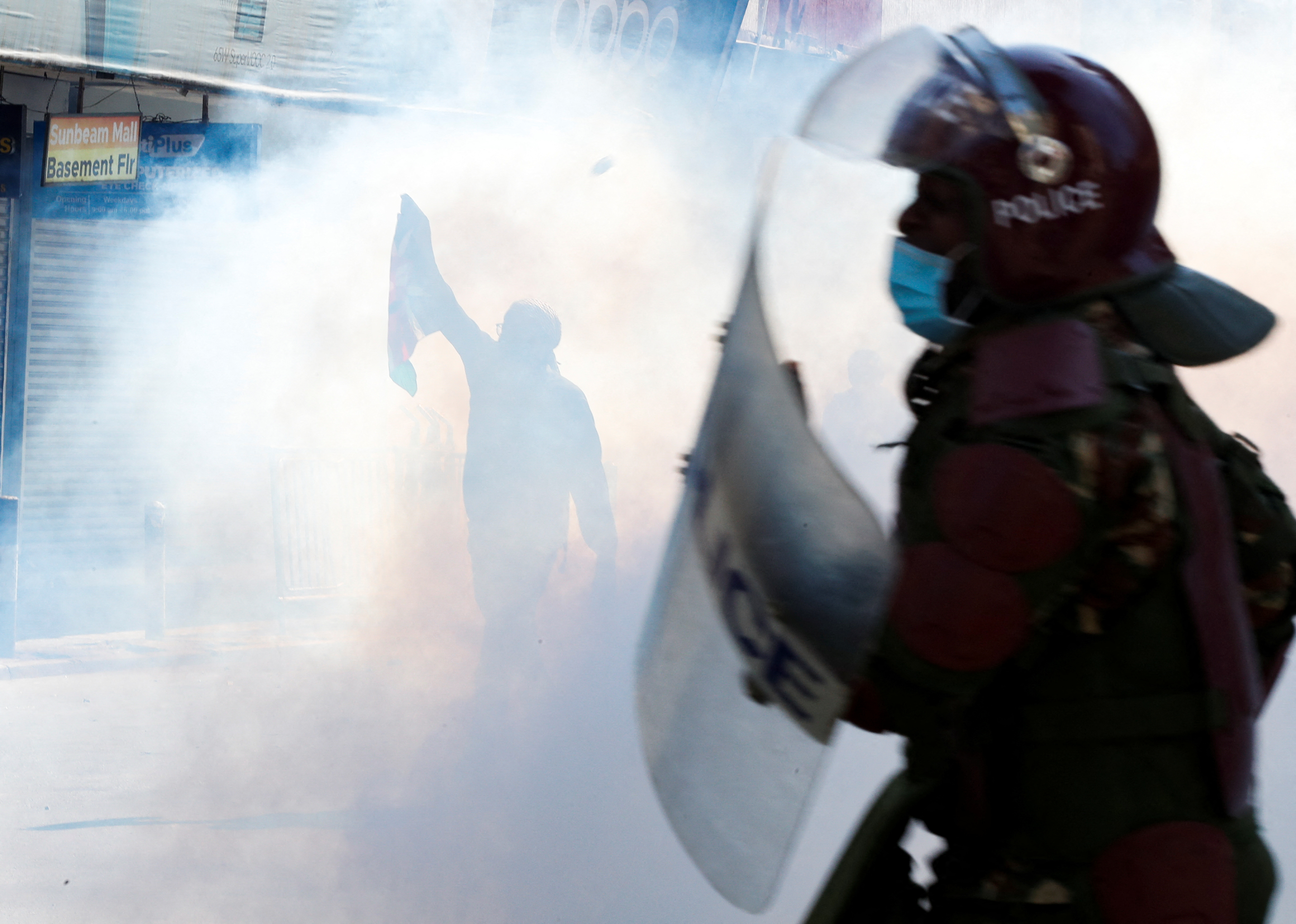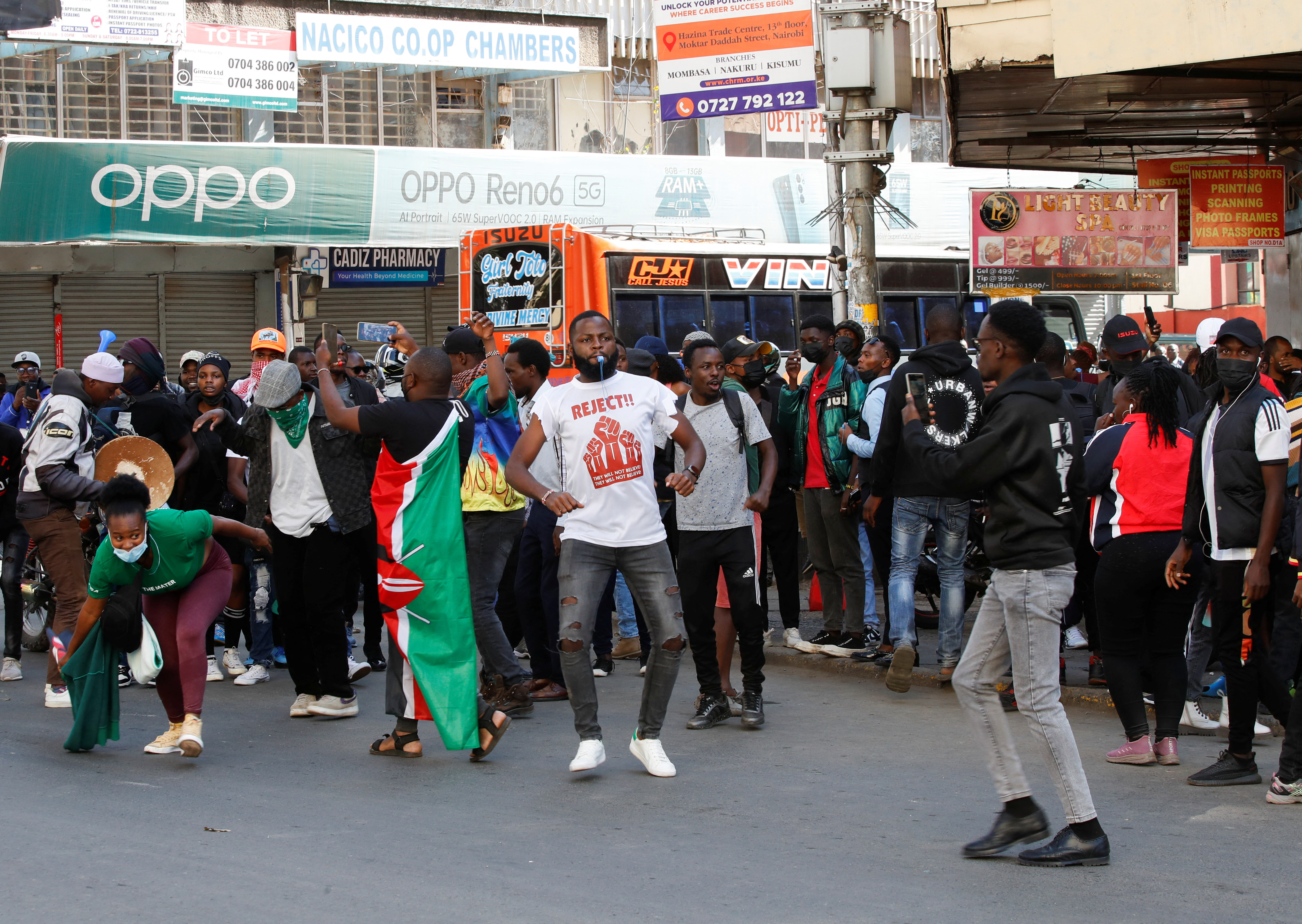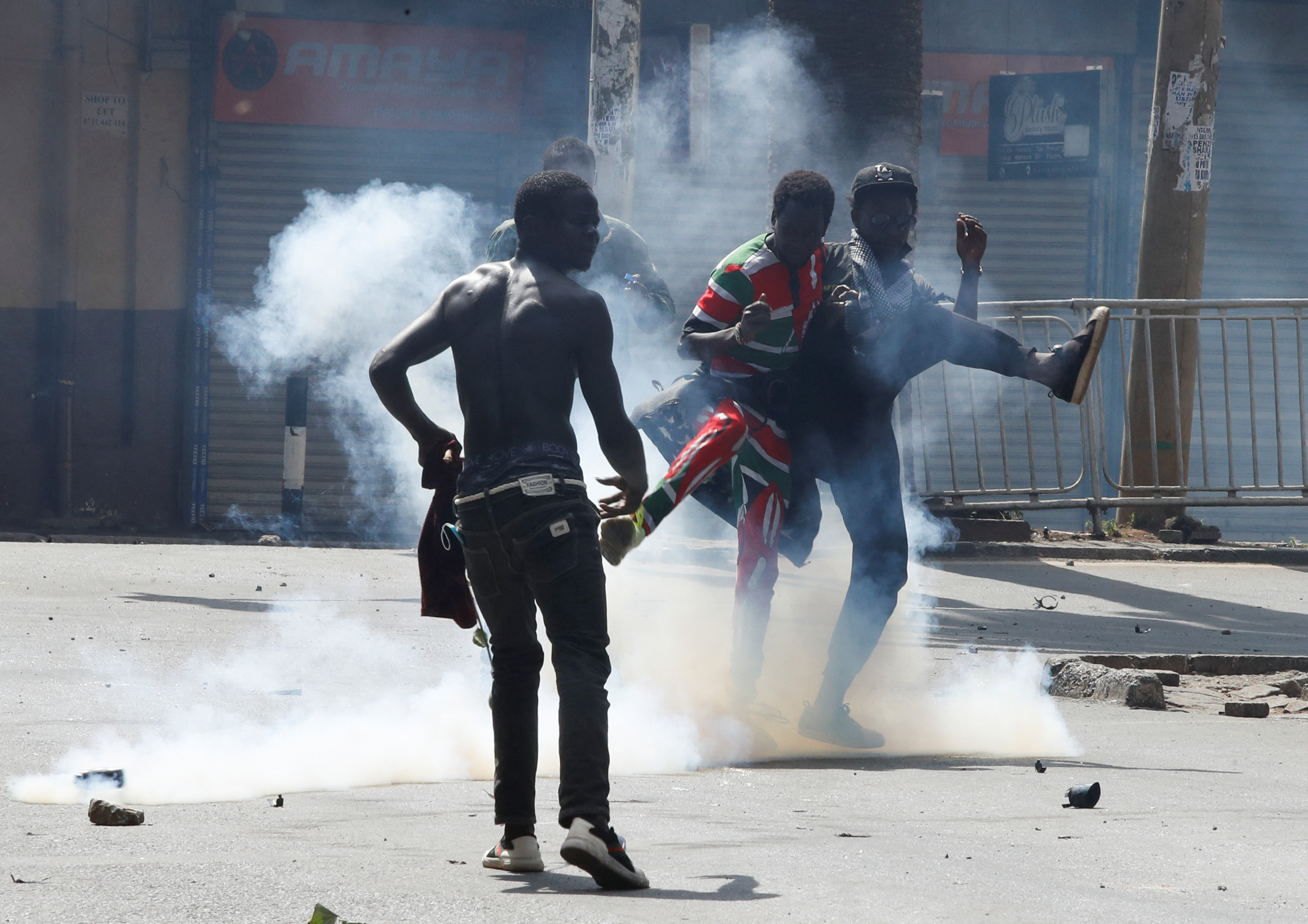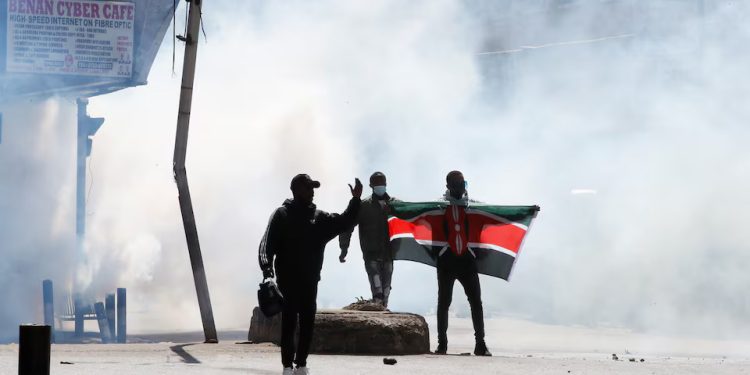Summary
Police fired tear gas and water cannon to disperse demonstrators in the Kenyan capital Nairobi and other cities on Tuesday as thousands took to the streets across the country to protest against proposed tax hikes.
Police units also sealed off the parliament, where lawmakers were debating the tax bill, and State House, site of the president’s office and residence.
Organisers have called for protests and a general strike against the tax legislation hoping to build on momentum that has in the span of a week turned an online, youth-led movement into a major headache for the government.

Protesters also called for President William Ruto to go.
Ruto won an election almost two years ago on a platform of championing Kenya’s working poor, but has been caught between the competing demands of lenders like the International Monetary Fund, which is urging the government to cut deficits, and a population reeling from rising costs of living.
As protesters rallied on Tuesday, police fired tear gas in the Central Business District and the Kibera shantytown, Reuters journalists said.

Hundreds also marched through the streets of the coastal city of Mombasa, in Kisumu, a port city on Lake Victoria, and other towns, Kenyan television showed.
Police dispersed anyone gathering in streets around the parliament in Nairobi.
“This is my first protest,” said Sonia, 37, a digital marketer. “The other years I didn’t really feel a need to come out but it’s (taxes) really affecting my business.”
“Most times when Kenyans protest it’s violent, but no one is looting. The cops are the ones who are beating us for no reason,” she said.
Citizen TV showed one person, possibly injured, being carried away by other protesters.
Despite the police actions, there was a generally festive atmosphere in several areas in the first hours of the protests.
Music played from loudspeakers and protesters waved Kenyan flags and blew whistles. In one area, waitresses from a pizza restaurant threw bottles of water to demonstrators.
People chanted “Ruto must go” and crowds sang in Swahili: “All can be possible without Ruto”.
Police did not respond to Reuters requests for comment.

Thousands had taken to the streets of Nairobi and several other cities during two days of protests last week.
Although last week’s protests were almost entirely peaceful, police repeatedly fired tear gas and water cannon. Two people were killed, with one struck by a gunshot and another by a tear gas canister, human rights groups said.
In remarks on Sunday, Ruto praised the protesters, saying they had been peaceful and that the government would engage with them on the way forward.
While protesters initially focused on the finance bill, their demands have broadened to demand Ruto’s resignation.
ORGANIC MOVEMENT
In parliament, lawmakers voted for the proposed amendments to the bill, including some that remove the more unpopular proposals, such as the motor vehicle tax.
The opposition declined to participate in the vote, shouting “reject, reject” when the house went through them one by one. The bill will then be subjected to a final vote by acclamation on the floor of the house.
The finance bill aims to raise an additional $2.7 billion in taxes as part of an effort to lighten the heavy debt load, with interest payments alone consuming 37% of annual revenue.
The government has already made some concessions, promising in amendments to the bill to scrap proposed new taxes on bread, cooking oil, car ownership and financial transactions. But that has not been enough to satisfy protesters, who want the entire bill scrapped.
The finance ministry says the amendments would blow a 200 billion Kenyan shilling ($1.56 billion) hole in the 2024/25 budget, and compel the government to make spending cuts or raise taxes elsewhere.
“They are budgeting for corruption,” said protester Hussein Ali, 18. “We won’t relent. It’s the government that is going to back off. Not us.”
Reports: Reuters




















